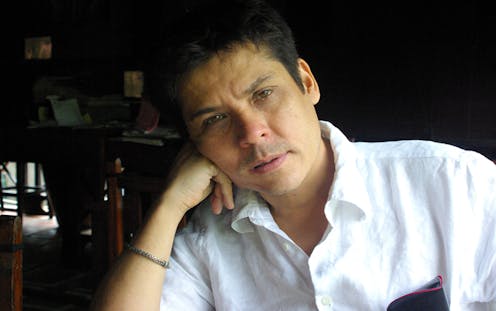a forensic poet with obsessive resolve
- Written by Jessica Wilkinson, Associate Professor, Writing and Publishing, RMIT University

The first poem of Adam Aitken’s new collection Revenants is a curiosity that demands close attention:
Xmas, Singapore 1957
Much better than thatMelbourne dayin ’56 –so my father wrotein blue fountain penon airline parchment
to his mother Jean.
Apéro-time thenEnglish goose + trimmings,a bottle of BOAC Bordeaux,2 anti-acid for dessert
all in best company.
Review: Revenants - Adam Aitken (Giramondo)
Read more https://theconversation.com/adam-aitken-a-forensic-poet-with-obsessive-resolve-176549

















